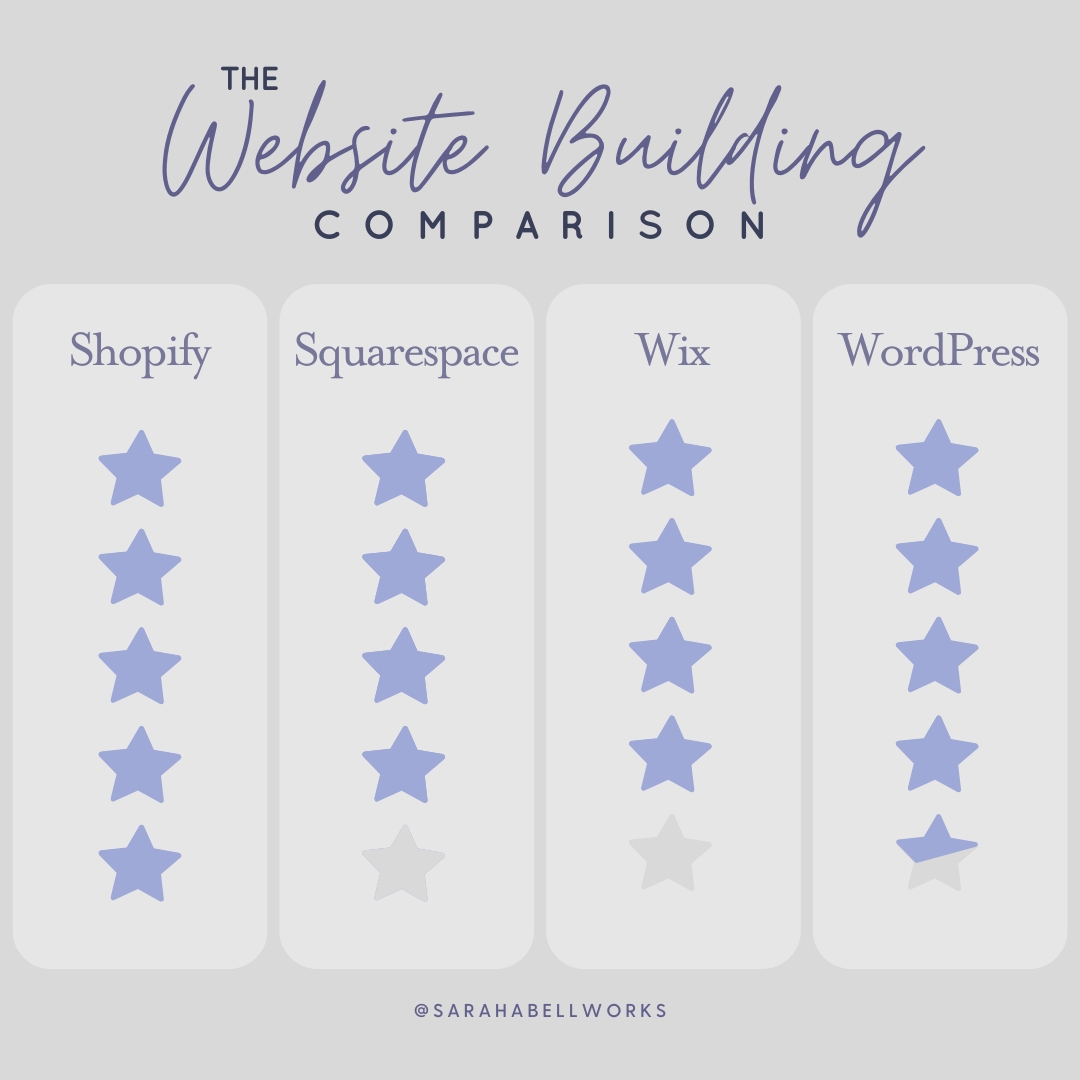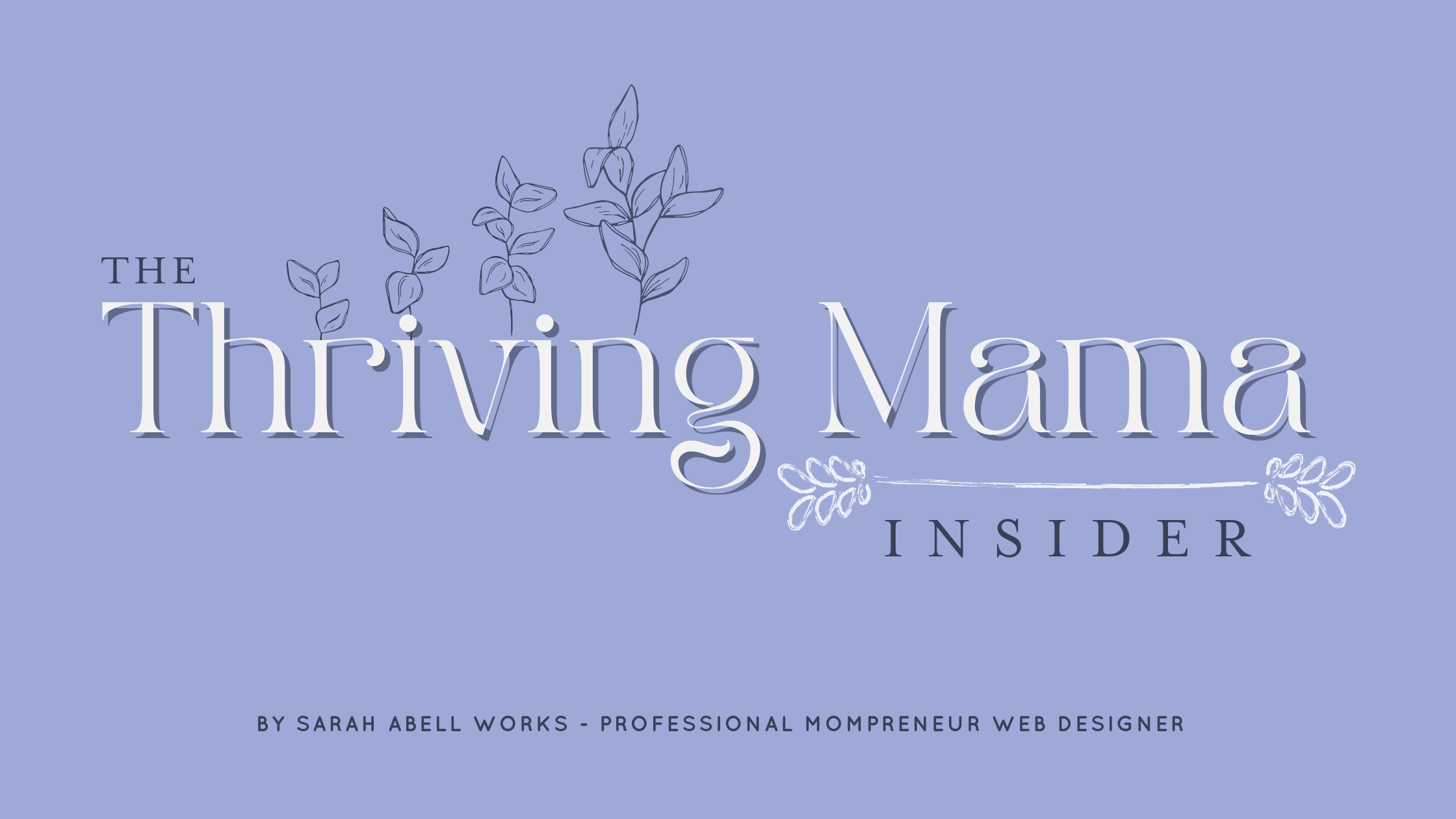WordPress vs. The Alternatives

Sometimes, it’s hard to know which platforms are the right platform for our business! Let’s take a look at which platform is best for your website.
Which platform is best for you?
Shopify
It’s perfect for any business or organization selling physical or digital products. Shopify powers over 500,000 stores and is built from the ground up as a store platform. If you want to run a store, Shopify is an eCommerce store platform.
[PROS]
[-] No coding knowledge needed
[-] Sell shippable goods, digital products, services, or even do dropship
[-] Try free for 14 days and use the Lite plan if you want to sell social media products
[-] Use their integrations for your existing brick-and-mortar storefront
[-] Fully hosted, and 24/7 customer support
[-] No transaction fees if you use their payment processing module
[CONS]
[-] They can take your store down at any time since they host it for you
[-] Payment processing fees are above the standard credit card processing rates if you’re not using their payment module
[-] The blog module is not particularly user-friendly
Features
[-] Can sell on Facebook and offer targeted discounts to loyal customers
[-] Integrate with apps, set customer profiles, generate refunds, and receive automated inventory updates
[-] Receive unlimited bandwidth, unlimited orders, automatic Shopify updates, and Level 1 PCI compliant security
Squarespace
Known for its beautiful and mobile-friendly website themes. eCommerce store capability was added in 2016 and is slowly getting more mature, with all the basic functionality needed but without the integration and finesse of a platform like Shopify.
[PROS]
[-] No coding knowledge needed
[-] Squarespace is famous for offering fantastic reliability and performance compared to many other builders
[-] Get a free domain name by purchasing an annual plan
[-] Squarespace doesn’t limit the number of items you can sell
[-] You get a 24/7 email support
[CONS]
[-] They can seem very high
[-] Loading times can be pretty slow
[-] Not a lot of payment options available
[-] You’re likely to feel a little confused by the process at first
[-] It can feel a little restrictive to build using content blocks
Features
[-] Quick-view options allow customers to see products without clicking away from the page
[-] Receive low stock alerts, show customers stock availability, and sync other eCommerce platforms
[-] Receive real-time shipping estimates and set shipping rates either flat or weight-based
Wix
It powers more websites worldwide than Shopify and WordPress. It started with simple informational websites. Today there is advanced eCommerce store capability and support for many other websites.
[PROS]
[-] Easy to use back-end that’s perfect for beginners
[-] Wix app market offers access to various forms of functionality
[-] One of the most affordable store platforms around
[-] Support for both digital and physical goods
[-] No sales fees to worry about (or commission requirements)
[CONS]
[-] Some issues with limited loading speeds
[-] Fewer tools than some other eCommerce solutions
[-] Some customization options are missing
Features
[-] Comes with in-built email marketing functionality, social media tool, and a video maker
[-] Sell on multiple platforms, including Amazon, eBay, Facebook, and Instagram
[-] Automate and track every step of the customer journey from purchase to delivery
WordPress
It’s a website platform for all our marketing clients.
You are taking on more management and layout responsibilities than other website builders. Still, it’s the most flexible website platform globally and easily grows with a business or organization.
[PROS]
[-] Free to use
[-] Build a custom site
[-] Lots of add-ons to choose from
[-] Easy drag and drop content onto a page
[-] Over 27% of websites use WordPress. Other platforms make up less than 1%
[-] You own your site and all the code that goes into making your site
[-] WordPress is excellent for SEO
[CONS]
[-] WordPress is subject to security flaws once you start adding plugins
[-] Can be overwhelming to use because
[-] It can take a little longer to set up
[-] WordPress has no official customer support
Features
[-] Easy customization with drag-and-drop functionality
[-] Access revised version of posts and old content
[-] Choose from over 11K themes
Pros & Cons
[PROS]
[-] No coding knowledge needed
[-] Sell shippable goods, digital products, services, or even do dropship
[-] Try free for 14 days and use the Lite plan if you want to sell social media products
[-] Use their integrations for your existing brick-and-mortar storefront
[-] Fully hosted, and 24/7 customer support
[-] No transaction fees if you use their payment processing module
[CONS]
[-] They can take your store down at any time since they host it for you
[-] Payment processing fees are above the standard credit card processing rates if you’re not using their payment module
[-] The blog module is not particularly user-friendly
[PROS]
[-] No coding knowledge needed
[-] Squarespace is famous for offering fantastic reliability and performance compared to many other builders
[-] Get a free domain name by purchasing an annual plan
[-] Squarespace doesn’t limit the number of items you can sell
[-] You get a 24/7 email support
[CONS]
[-] They can seem very high
[-] Loading times can be pretty slow
[-] Not a lot of payment options available
[-] You’re likely to feel a little confused by the process at first
[-] It can feel a little restrictive to build using content blocks
[PROS]
[-] Easy to use back-end that’s perfect for beginners
[-] Wix app market offers access to various forms of functionality
[-] One of the most affordable store platforms around
[-] Support for both digital and physical goods
[-] No sales fees to worry about (or commission requirements)
[CONS]
[-] Some issues with limited loading speeds
[-] Fewer tools than some other eCommerce solutions
[-] Some customization options are missing
[PROS]
[-] Free to use
[-] Build a custom site
[-] Lots of add-ons to choose from
[-] Easy drag and drop content onto a page
[-] Over 27% of websites use WordPress. Other platforms make up less than 1%
[-] You own your site and all the code that goes into making your site
[-] WordPress is excellent for SEO
[CONS]
[-] WordPress is subject to security flaws once you start adding plugins
[-] Can be overwhelming to use because
[-] It can take a little longer to set up
[-] WordPress has no official customer support
Features
Features
[-] Can sell on Facebook and offer targeted discounts to loyal customers
[-] Integrate with apps, set customer profiles, generate refunds, and receive automated inventory updates
[-] Receive unlimited bandwidth, unlimited orders, automatic Shopify updates, and Level 1 PCI compliant security
Features
[-] Quick-view options allow customers to see products without clicking away from the page
[-] Receive low stock alerts, show customers stock availability, and sync other eCommerce platforms
[-] Receive real-time shipping estimates and set shipping rates either flat or weight-based
Features
[-] Comes with in-built email marketing functionality, social media tool, and a video maker
[-] Sell on multiple platforms, including Amazon, eBay, Facebook, and Instagram
[-] Automate and track every step of the customer journey from purchase to delivery
Features
[-] Easy customization with drag-and-drop functionality
[-] Access revised version of posts and old content
[-] Choose from over 11K themes
Four unique website platforms and the features of each! Some have similar features, and some are entirely different.
I’ve personally built on Squarespace, Shopify, and WordPress. WordPress is still my favorite! I’ve been building websites for my clients on it for over 10 years.
[Source: Ecommerce Platforms, Geek Unicorn]
